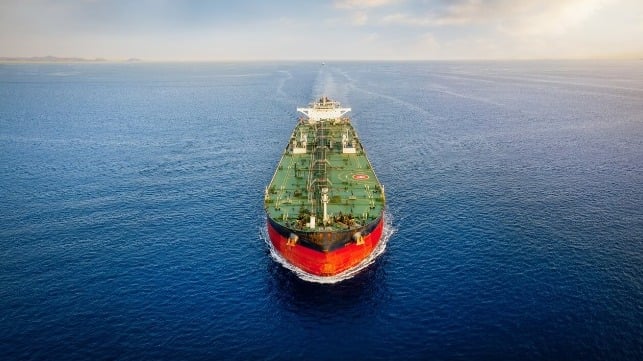In a Bull Market, Used Tankers May Be Worth More Than New Ones
Tanker players are paying a premium for near-term availability, according to BIMCO

In an unusual sign of strength in the crude tanking sector, five-year-old Suezmaxes have become more expensive than newbuilds, according to the Baltic Exchange - a rare reversal reflecting high day rates. This could have the effect of making newbuilds look comparatively cheap, and could possibly spur a familiar pattern of overbuilding and overcapacity.
"Secondhand tanker asset values have inflated rather aggressively over the last two years, moving up at a faster rate than freight rates. In some cases, five-year-old vessels are markedly more expensive than a newbuild order," reported analyst Urs Dur on behalf of the Baltic Exchange. "In our view, this market environment may lead to an overordering of tankers, something strong markets have spurred in the past."
Dur estimates that the breakeven day rate for a five-year-old Suezmax at today's prices would be about $30,000. The average time charter equivalent rate for a Suezmax for the last two years has been about $51,000, so this shows a strong potential for profit. However, the ten-year average day rate is $28,000. A secondhand buyer would lose money if day rates fell back to historic norms; a newbuild would be slightly cheaper and would still earn money in an average market.
For the owner who opts to buy new, there is a familiar wrinkle. Any newbuild would deliver 30 months from now. Since the order would take more than two years to fulfill, a newbuild would be a bet on the health of the future market, and the owner would not be able to capitalize on the strong earning potential of the current market while awaiting delivery.

that matters most
Get the latest maritime news delivered to your inbox daily.
Further, Dur noted, environmental rules are changing fast and will likely evolve within the next few years. New clean-fuel requirements or emissions regulations could roll out during the period when the vessel is under construction, and enter into force by the time the new tanker delivers.
"Despite these factors, the Suezmax newbuild order remains attractive and the orderbook will likely continue to grow, with history possibly repeating itself," Dur warned.
